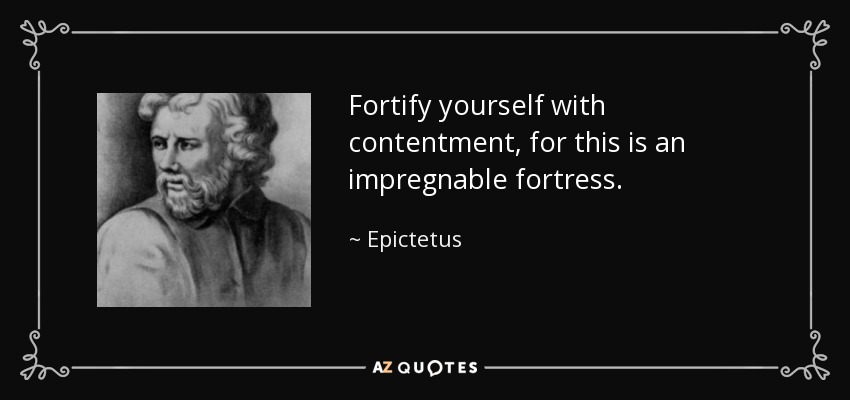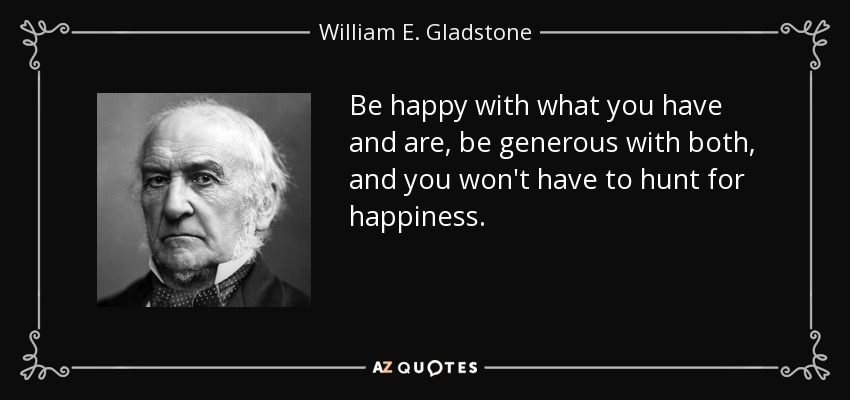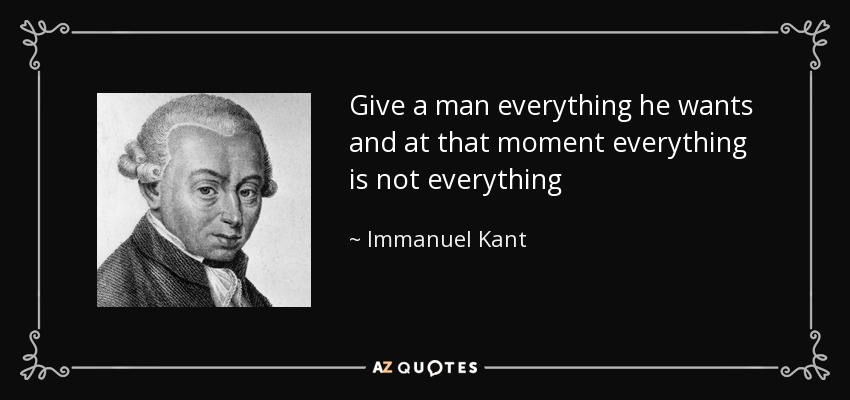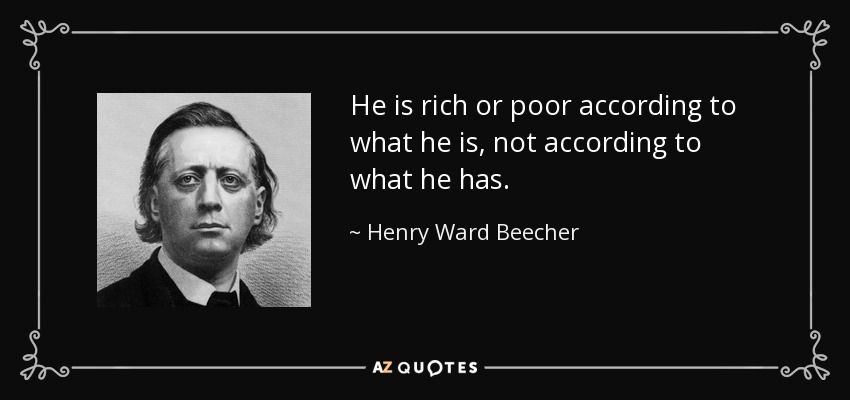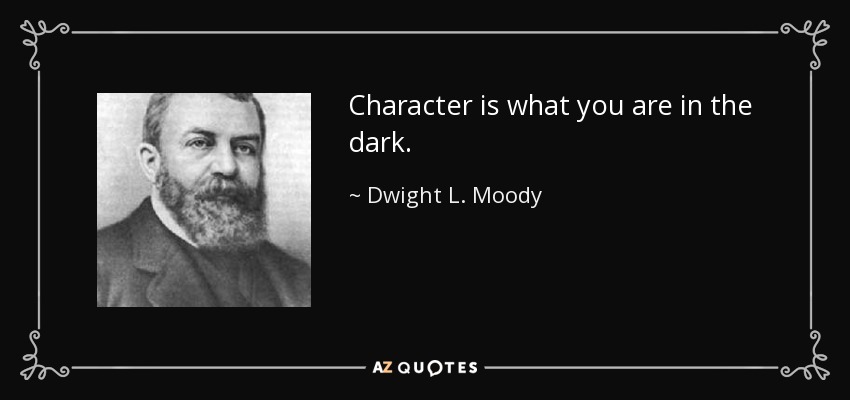Click here to return to Blog Post Intro

The Freedom of Contentment: A Gift from Another World
Dallas Willard said, “We are spiritual beings having a physical experience.”
Young children find equal delight in a puddle or a pigeon, a worm or a waffle. Throw in a puppy, and joy goes off the charts. Jesus pointed out, “The kingdom of heaven belongs to such as these.”
Contentment is one of the greatest joys and privileges of the Christian life. “The Lord is my shepherd, I shall not want” is God speaking code about a secret path (yes, it is a secret) to freedom. Freedom from wanting more than is good for us. Contentment is when…
- We tell the Shepherd that His provision is enough for all our physical and material needs.
- We tell the Shepherd that His presence is sufficient for all our emotional needs.
- We tell the Shepherd that His providence is perfect for all our future needs.
We rest content under the care of the Shepherd. No one else can get it right.
Contentment is not:
- Complacency in the face of things that should be changed.
- If we want to plant a flower garden, it is not sufficient to throw seeds on the ground and retire to the television for a month. We must work to make the flowers remind the world that God is a relentless artist.
Our own efforts often exceed the requirements of contentment. We push and strive not for righteousness or the glory of God, but for vanity, envy, or the love of money. In our pursuits, we often bypass God to secure our own futures.
Jesus and Contentment: The Man Who Needed Nothing
Jesus walked free of encumbrance with a holy disregard for the external. He spent an entire lifetime content with what He had and spoke against those who desired excess or cherished material things above spiritual things.
Our attitudes today could not provide a greater contrast. We have an insatiable interest for details about famous people. Television and magazines are filled with the minutiae of their lives. Interestingly, we don’t know Jesus’ address, His appearance, His clothes, His shoes, His hair, His education, or His income. The few things we know about are specifically intended to be unimpressive: His parents, His birthplace, His hometown, and His connections.
Jesus lived in a lofty disregard for status and possessions. He was content to trust the Father for His daily needs and steadfastly refused to worry. He told us, too, to stop worrying —the Father knows what we need as well. Fast-forward to the twenty-first century, where worry is in an inflationary cycle. Despite more progress, privilege, and possessions than ever before, we are worried all the time.
In Jesus’ entire life, He coveted nothing. Neither did He have a moment of discontent regarding possessions. Make no mistake, Jesus often exhibited a divine discontent regarding the spiritual status quo —but never regarding material things.
Contentment in History: Seated in the Place of Honor
Scriptures exhort us to act reverently toward contentment. Prominent are these four reasons:
- The Tenth Commandment demands that we not covet.
- The Wisdom Literature of the Old Testament, particularly Psalms and Proverbs, speaks eloquently of a calm satisfaction in God, His sovereignty, and His gifts.
- The life and teachings of Jesus, as we have seen, reveal a consistent endorsement of contentment.
- The Epistles contain three compelling passages where contentment is both commended and commanded: Philippians 4; 1 Timothy 6; and Hebrews 13.
Contentment is expressed in Psalm 23 as “The LORD is my shepherd, I shall not be in want.” Socrates famously said, “Contentment is natural wealth; luxury, artificial poverty.” At another time, “He is richest who is content with the least; for contentment is the wealth of nature.” Plato followed with a similar theme, “The greatest wealth is to live content with little.”
The brilliant and often hard-to-read theologian John Owen (1616–1683) taught, “Learn to be contented with your lot. Our wise God gave you exactly what is commensurate for your good.”
Charles Kingsley (1819–1875), English priest, historian, and novelist, wrote, “We shall be made truly wise if we be made content; content, too, not only with what we can understand, but content with what we do not understand —the habit of mind which theologians call, and rightly, faith in God.”
Henri Frederic Amiel (1821–1881), Swiss writer, poet, and philosopher, wrote, “True humility is contentment.” Marie von Ebner-Eschenbach (1830–1916), Austrian novelist, wrote, “To be content with little is difficult; to be content with much, impossible.”
India’s Mahatma Gandhi (1869–1948) taught, “Man falls from the pursuit of the ideal of plain living and high thinking the moment he wants to multiply his daily wants. Man’s happiness really lies in contentment.”
Charles Spurgeon (1834-1892), the “Prince” of British Preachers pointed out: You say, “If I had a little more, I should be very satisfied.” You make a mistake. If you are not content with what you have, you would not be satisfied if it were doubled.
The Modern De-Emphasis of Contentment: A Dangerous Neglect
John Owen, who lost ten of his eleven children in infancy, said, “Learn to be contented with your lot. Our wise God gave you exactly what is commensurate for your good. Had He known that a foot’s breadth more had been needful, you would have had it.” Hardship and suffering often make the reality of contentment more precious.
Progress is now the most powerful force on the face of the earth. Progress uses a simple formula to generate success. It is a one-trick pony, a specialist. Its specialty is the four-letter word more, and its advertising slogan is “More and more of everything faster and faster.”
Many people are reaching a point where their limits are breached. They reach saturation and feel overloaded. For the first time, to have more sounds less attractive and to have less sounds more attractive.
Hudson Taylor (1832–1905), who traveled to China 150 years ago, was relentless and driven—but with the opposite meaning we would expect today. He was relentlessly sacrificial and driven to seek first the kingdom of God.
Taylor learned to trust God in every area of his life. He explained, “I soon found that I could live upon very much less than I had previously thought possible. Butter, milk, and other such luxuries I soon ceased to use; and I found that by living mainly on oatmeal and rice, with occasional variations, a very small sum was sufficient for my needs. In this way I had more than two-thirds of my income available for other purposes. And my experience was that the less I spent on myself and the more I gave away, the fuller of happiness and blessing did my soul become.”
The Secret of Contentment: Increasing Our Joy and Contentment Range
Paul explains three important components of contentment: (1) it is to be learned, (2) it is a secret, and (3) it is to apply across the entire spectrum of life circumstances.
In The Rare Jewel of Christian Contentment, Jeremiah Burroughs (1599–1647) wrote, “Contentment in every condition is a great art, a spiritual mystery. It is to be learned and to be learned as a mystery.”
Dr. Swenson provides twelve prescriptions that can help us learn to be content:
- Be Intentional
- Evaluate Experiences. In each of life’s experiences, if we learn to look deeper, we will find God standing in the shadows, whispering instructions. He is always there, regardless of the occasion, asking us to trust His provision and His providence.
- Be in the Presence of God. God is very intimate, extremely personal, and has all the time in an infinity of infinities. If our lives are too busy, too self-absorbed, or too full of media, and there is no room for communing with our Maker, then the experience of contentment will be an academic exercise rather than a daily reality.
- Demonstrate Patient Submission to Christ
- Moderate Desires. There has been a continuous escalation of the norm in our desires over the past decades that has scarcely been challenged. At some point we will need to do three things. First, come to a complete stop. Second, think about it long enough to see the behavior. And finally, when we are ready, make a conscious turn toward the de-escalation of desires. Once we make the transition, we will discover a pleasant surprise: Desiring less actually increases our satisfaction.
- Adjust Hearts. The real cause of our discontent is not in our circumstances. If it were, a change of circumstances might cure it. The only cure must be the curing of the fever of discontent in us.
- Make Daily Choices. Life is an endless series of daily choices, some mundane, others life-changing. God is most interested in those that shape our faith.
- Be Patient. “We must pray for the graces of contentment and patience, and a holy indifference to all the things of sense and time,” wrote Matthew Henry (1662–1714). “It is an unreasonable thing to be weary of waiting for God.” Paul said, “I have learned the secret of being content.” What does he mean? What secret? Theologian J. I. Packer said Paul chose the word secret intentionally. The original wording suggests he had been “initiated” into a secret teaching. The first step to gaining the secret of contentment is that we must want it. Second, we must agree to rid ourselves of the pincer claws of this world. Third, God must judge us earnest enough to make good use of it. Then we get the secret.
- Cultivate Inner Contentment. The teaching here is that houses are fine, money is fine, cars and clothes and curtains are fine —but in the end, they are only minor tools. The real narrative, the only thing that counts in the beginning and in the end, concerns our inner life.
- Don’t Look Back. “If only” and “What if” are contentment killers. As a physician and a futurist, Dr. Swenson agrees with Paul when he said, “Forgetting what is behind and straining toward what is ahead, I press on toward the goal.”
- Place Our Relationship with Christ Above Our Relationship with Things. When we have an abundance of possessions, we feel privileged. We enjoy lounging with our things and counting our money. When they are taken away, we fear for our lives.
- Accept God’s Providence over Our Preference. Contentment is our glad submission wrapped in God’s providence. The doctrine of providence explains that God has a plan, and that it is a perfect plan.
Godliness with Contentment: Spiritual Wealth for All
In 1 Timothy 6:6-8, Paul wrote, “Godliness with contentment is great gain. For we brought nothing into the world, and we can take nothing out of it. But if we have food and clothing, we will be content with that.”
It is important to understand that even if it is only rarely achieved, it is possible for us to live godly, contented lives.
Godliness is an attitude whereby what we want is to please God. Contentment is accepting from God the circumstances in which He has placed us, recognizing that His presence, provision, and providence are far greater than any circumstances we could imagine.
Contentment is much easier when we remember “from the fullness of his grace we have all received one blessing after another.” A cofounder of the computer-chip maker Intel said that, according to their research, people’s attention starts to wander after one-half of a second. With such relentless distractibility, how can we recall God’s long record of being kind to us?
People who want to get rich fall into temptation and a trap and into many foolish and harmful desires that plunge men into ruin and destruction. For the love of money is a root of all kinds of evil. Some people, eager for money, have wandered from the faith and pierced themselves with many griefs.
Dr. Swenson offers four prescriptions to help us discover godliness with contentment in our own lives:
- Regard Godliness with Contentment as a Form of Wealth
- Refuse Piercing —and Plunging, Too. Temptation, trap, foolish, harmful, plunge, ruin, destruction, evil, wander from faith, pierced, griefs—that’s quite a string. God does allow wealth and clearly blesses people in that direction, but the parameters are narrowly drawn and, unless we don’t mind being pierced and plunged, we should try to remain within specifications. Money has a particular knack for domination. It takes control of people large and small, rewrites their brains, and keeps them rolling the dice, throwing caution to the wind.
- Despise Not a Humble Estate. One of the clearest teachings in Scripture is that God aligns Himself with the humble. He explicitly exalts humility. “Contentment does not dwell so often in palaces as in the homes of the humble,” wrote J. R. Miller.
- Remember the Double Narrative. For four thousand years, God has been trying to show us the two realities, always beckoning us to understand that there is a much larger truth outside our tunnel experience. Part of this message is that money, gold, and silver are tools, not truth. We have permission to use them as tools but never permission to fall in love with them. Spiritual riches, on the other hand, are indeed truth.
Be Content … Because God: Commended and Commanded
Hebrews 13:5 is a compact verse that carries a big punch. It addresses our covetous love of money, our contentment, and God’s unshakable faithfulness.
Thomas Watson, author of The Art of Divine Contentment in the seventeenth century, wrote a treatise on the Ten Commandments, where he gave “six particulars” of “What it is to covet”:
- When our thoughts are wholly taken up with the world
- When we take more pains for getting earth than for getting heaven
- When all our discourse is about the world
- When we so set our hearts upon worldly things, that for the love of them, we will part with heaven
- When we overload ourselves with worldly business
- When our hearts are so set upon the world, that, to get it, we will use unlawful means
When desire becomes inordinate desire, it is covetousness, it is sin, and it is dysfunction. Problems always result.
In our day—when more and more of everything comes at exponential rates—the cauldron of discontent is fed like never before. The object of our affection is not singular but plural and continuously growing.
Dr. Swenson gives five prescriptions for us to heed Paul’s words to “Be content with what you have”:
- At All Costs, Avoid Envy. Envy is a one-way street to misery. It not only dishonors God, but it sets up base camp in our heads and poisons our thoughts. “Envy rots the bones,” says Proverbs.
- Never Leave God, Never Forsake People
- Cling to the Word “Never.” “Never will I leave you,” is one. Think of it —the implications of the word never.
- Submit to “Be Content”. Unfortunately for us, we live in an era of independence, not submission. We are self-contained, self-directed, self-motivated, self-made, self-actualized, self-sufficient, self-assured, and perhaps self-centered, self-indulgent, and self-justifying to boot. Swenson suggests that we bend the knee in surrender…a glad surrender.
- Keep the Tenth Commandment. To faithfully keep the tenth commandment, “Thou shall not covet,” will move us well down the line toward a contented life.
Contentment and Simplicity: Setting Aside the Things That Hinder
C.C. Colton said, “True contentment depends not upon what we have; a tub was large enough for Diogenes, but a world was too little for Alexander.”
Pruning excessive branches leads to a healthier fruit tree and improved harvest. Our lives are no different. We all need to prune away the excess, to periodically clear out the underbrush: possessions, magazines, books, clothes, furniture, technology, media, information, expectations, and decisions.
Simplicity has always been a good idea, but in today’s world the stakes are much higher. The mathematics of profusion —more and more of everything faster and faster now at exponential rates —has risen to extraordinarily burdensome levels.
Overload, by definition, is dysfunctional, which means there are various symptoms associated with it: stress, frustration, disorganization, depression, fatigue, exhaustion, and relational problems.
When we speak of spiritual disciplines, contentment is an internal discipline (such as prayer, fasting, meditation), while simplicity is an external discipline (such as service, giving, worship).
Dr. Swenson provides seven prescriptions to help us on the journey:
- Stay Off the Hedonic Treadmill. Studies have shown that economically developed countries do not have higher levels of happiness than less-developed countries. Our national fixation with more has been very successful. Yet, somehow, our overall emotional well-being has not improved.
- Listen to the Past. If we wish to learn the secret of contentment, listen to those who went before. Their experiences and stories have not gone out of date.
- Don’t Grow the Pile, Throw It
- Beware of Impulses. A recent study reported that 76 percent of a shopper’s purchasing decisions were made in the store. Simplicity is about intentionality and boundary formation, the opposite of impulse shopping. Simplicity is about priority-based decision making, frugality, and consumer restraint, not random and expensive impulses. Simplicity is about being content with less, with enough, with sufficiency.
- Try One Step at a Time
- Consider Dying Like Your Doctor. It turns out that many (if not most) medical professionals react to their own terminal diagnosis with resigned simplicity. Knowing precisely what they face, these doctors refuse to put themselves through the agony and expense of heroic measures. One highly respected orthopedist found a lump in his abdomen that was diagnosed as aggressive cancer. He went home the next day, closed his practice, and never set foot in a hospital again. He focused on spending time with family and feeling as good as possible. Several months later, he died at home. He had no chemotherapy, radiation, or surgical treatment. Medicare didn’t spend much on him.
- Throw Off Everything That Hinders. Paul adds, “Make it your ambition to lead a quiet life.” Dallas Willard says that “silence involves two things: quiet and not talking.” Isaiah writes: “In quietness and trust is your strength.”
Contentment and Money: A Different Kind of Wealth
It might be surprising that a recent survey revealed India as the second happiest country in the world. Granted, the survey included only twenty-four countries, but among those polled, Indonesia was first (51 percent very happy), followed by India (43 percent very happy), Mexico, Brazil, Turkey, and then the U.S. (28 percent very happy).
It seems the happiness of a nation has less to do with its quality of life than we might think. For many of us, this is a pretty jarring thought.
The GDP (gross domestic product) per capita in the U.S. is twenty times higher than in Nigeria, but we are less happy than they are. Every study confirms this same general result.
People show increasing happiness with increasing income up to the point when we can afford our perceived basic needs. After the point where our basic needs are met, happiness levels out.
Money has the opportunity to bring great good and spread blessing when it is used wisely, generously, and Biblically. As God determines, He gives significant wealth to righteous people for the benefit of building up the church and providing for the poor.
The Bible warns us repeatedly about the power of money, speaking more about it than prayer. Money is singled out by God for special warning. It is the only power having the audacity to go toe to toe with God and challenge Him for ownership. “No one can serve two masters,” Jesus said. “Either he will hate the one and love the other, or he will be devoted to the one and despise the other. You cannot serve both God and Money.”
Money has led to a work, earn, and spend cycle. Each time around the track, the spend is greater than the earn, thus requiring more work; and the requirement for more money keeps accelerating.
Money often leads to greed. Most of the dysfunctions in our national economy can be traced to the greed of large institutions as well as individual behaviors. “Man never has what he wants,” wrote C. F. Ramuz (1878–1947), “because what he wants is everything.”
Dr. Swenson provides eight prescriptions to help us gain control of the money issues in our lives and submit them to the control of the kingdom:
- Base Contentment on God Rather Than Economics. Proverbs says, “Whoever trusts in his riches will fall.” The road to a contented life is to love God and to use money. Inverting the two is like brushing our teeth with arsenic.
- Stop Thinking Primarily in Money Terms
- Pursue Activities That Don’t Cost Money. Joy, contentment, and happiness are gifts God gives us through our friends. This is what we see when visiting impoverished countries known for their joy. The West, where we have replaced biblical joy with financial joy, has become poor in friendship joy.
- Explore Employment Options
- Do Not Take Orders from Money
- Don’t Link Self-Esteem to Money
- Go Ahead, Buy the New Sofa, Maybe
- Resist Saying, “I Will Be Content When …” Contentment in God, His provision, presence, and providence, is not a postponable commodity. There is no contentment deferral clause in the Bible that says, “exempt if ___.” The Bible does not say be content when you have; it says be content with what you have.
Contentment and Suffering: The Indispensable Gift
St. Augustine said, “God had one son on earth without sin, but never one without suffering.”
What if we could find an end to stress, overload, anger, frustration, depression, anxiety, and panic? As tempting as this sounds, we would do well to consider a deeper thought: A life without suffering is a one-way ticket to superficial Christianity.
We need learn to say with Paul, “We also rejoice in our sufferings, because we know that suffering produces perseverance; perseverance, character; and character, hope. And hope does not disappoint us, because God has poured out his love into our hearts by the Holy Spirit, whom he has given us.” Only God starts with suffering and ends with hope and love.
Dr. Swenson offers five prescriptions to help us understand the secret power gained from hearing what God would say to His people:
- Share the Suffering. People are often isolated by suffering. They are anxious, depressed, and lonely.
- Thank God. Praise is a powerful painkiller, and so is gratitude. James tells us to “Consider it pure joy, my brothers, whenever you face trials of many kinds, because you know that the testing of your faith develops perseverance. Perseverance must finish its work so that you may be mature and complete, not lacking anything.”
- Complain to God. If we are disappointed and our heart is discouraged, it is okay to say, “How long, O Lord, how long?” But it is never okay to accuse God or try to hide from Him.
- Never Waste the Pain
- Welcome the Lesson. It has been said that adversity introduces a person to himself. No one fully knows their capacities until they have been challenged. How much suffering can we bear? How deep can we go? How strong can we be? Francis Frangipane wrote, “Life consists of learning lessons and passing tests. The integrity of God requires that our learning not be mere head knowledge but that our hearts be conformed to Christ.”
Contentment and Authenticity: What Jesus Knows Us to Be
Bob Benson said, “We are all so conditioned by the world in which we live that we can go a lifetime and never get within a stone’s throw of our own true selves.”
Similar to what Dwight Moody said above, authenticity is when we bring character into the light. Authenticity refers to a congruence between our character and our actions. There is no way to have biblical authenticity without biblical contentment. They travel together.
Love is not the road to authenticity —it is authenticity. Love is not just a good idea —it is the only idea. Love is not just the first step —it is the alpha and the omega.
Abraham Lincoln said, “Nearly all men can stand adversity, but if you want to test a man’s character, give him power.”
Dr. Swenson gives eight prescriptions that help keep us on the road to an authentic, contented life:
- Compare Today with 100 Years from Today. And one hundred years from now, what is it we wish we would have done today? This perspective represents true spiritual authenticity. “Remember,” said Henry van Dyke, “what you possess in the world will be found at the day of your death to belong to someone else, but what you are will be yours forever.”
- Invite Christ to Run Your Life —and Mean It
- When You Hear the Word, Do the Word. A Russian proverb reminds us, “There is no reason to accuse the mirror if you have a crooked face.”
- Live in Such a Way That if God Didn’t Exist, Your Life Wouldn’t Make Sense. Cardinal Suhard, Archbishop of Paris, once wrote, “To be a witness does not consist in engaging in propaganda or even in stirring people up, but in being a living mystery; it means to live in such a way that one’s life would not make sense if God did not exist.”
- Don’t Conform to the World
- Regard Authenticity as a Minute-by-Minute Proposition. We all say that we want God to run our lives, but running our minutes is a different proposition, and nothing less than walking in the Spirit.
- Avoid Interpersonal Comparisons. Nothing is more inauthentic than continuously playing the comparison game: looks, hair, income, cars, clothes, grades, athletics, vacations, gardens.
- Live Ready, Continuously. One of the great gifts of authenticity is that it leaves us continuously ready for whatever comes next. Authenticity maintains that to do the right thing is always the right thing to do.
On Final Approach: Contentment on the Road Home
Walter Percy once asked, “Is it possible for people to miss their lives in the same way one misses a plane?”
It doesn’t make any difference if you have a thousand dollars in the bank or a billion. If the people you want to love you actually do, you are a success.
God gave us love. If this is what we have been given, perhaps we can take a really bold risk and give Him a gift as well: our contentment. Who knows, it might turn out really well.
May you have Contentment: The Secret to a Lasting Calm, as you shoot for the stars!


